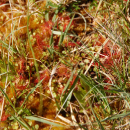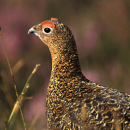14th January 2016
CLEAN for The Queen is launching a call to volunteers to join the UK’s largest litter pick and help get your local area looking its very best – in time for The Queen’s 90th birthday.
Celebrities, schoolchildren, army heroes and community leaders will kick-start Clean for The Queen with a special clean-up at the Sir John Cass’s Foundation and Red Coat School, in Stepney, London on 14 January at 11am. Afghanistan war hero Michael Swain MBE with various friends and local dignitaries will be joining in the clean-up.
Campaign director Adrian Evans wants to hear from individuals, groups, schools, companies, sports teams – anyone who is keen to pick up litter in their local communities, with the aim of attracting one million people during a special clean-up weekend on 4, 5 and 6 March. The clean-up is being supported by a host of major businesses, charities, local authorities and schools.
People should go to www.cleanforthequeen.co.uk to register their interest in taking part and organising their own clean up. On the website people can find details of how to organise an event, how to get hold of equipment and information on our grot-spot and school’s competitions.
Special edition ‘Clean for The Queen’ litter bags will be available from February onwards. Many local authorities will be able to provide the bags for collection free of charge. In addition, they’ll be available for free collection through selected branches of Costa and Waitrose across the country.
A recent survey conducted by Populus found that 90 per cent of respondents consider litter to be a massive issue, with 81 per cent saying that seeing litter makes them angry and frustrated. The Clean for The Queen event started off as a conversation between a handful of organisations, fed up with the continuing littering that affects the UK. Together, Country Life magazine, the Garfield Weston Foundation and the national charity Keep Britain Tidy, undertook to create the biggest clean up ever, with an ambition to get one million people engaged.
Adrian Evans said: “Our ambition is to create a community inspired, grass-roots mass action event – one that will become a recurring annual initiative. We feel that marking The Queen’s 90th birthday with the inaugural clean-up is a wonderful way to kick-start it to life.
“We want to show that millions of people in this country care passionately about the litter affecting the nation and are prepared to get out and do something about it. Everyone in this country will reap the benefits.”
Allison-Ogden-Newton, chief executive, Keep Britain Tidy, said: “We have worked hard to gather a considerable amount of support and backing from charities, community groups, local authorities and businesses. This is the first time that all of the anti-litter organisations have come together to support a UK-wide anti-litter campaign.”
Melissa Murdoch, trustee of the Garfield Weston Foundation, said: “By picking up one piece of litter, you will have made a difference. It would be great to have one million volunteers joining in to make a difference to their local areas right across the UK!”
Television presenter Kirstie Allsopp is backing the campaign. She said: “I know all too well from my travels around the country that there are places that could do with some TLC. I would urge everyone to get involved with Clean for The Queen.”
Environment Minister Rory Stewart said: “Everyone has a responsibility to keep their community tidy and this campaign provides us with a great chance to protect our wildlife and improve the quality of our streets and public spaces. I hope it will help lead to a lasting legacy of a cleaner, tidier Britain.”
National organisations including Keep Britain Tidy, Keep Scotland Beautiful, Keep Wales Tidy and Keep Northern Ireland Beautiful, Country Life magazine, the RSPB, the Women’s Institute, Clean Up Britain, the Garfield Weston Foundation, and the CPRE, are all supporting the initiative. Clean for The Queen is being funded by generous donations from the Garfield Weston Foundation, the Lund Trust and a number of private individuals. McDonalds, Greggs, Costa, Wrigley and KFC have also provided financial support and their employees will be taking part in the clean-up weekend.
To take part in Clean for The Queen, please go to
https://twitter.com/cleanforqueen
About Keep Britain Tidy
Keep Britain Tidy is a leading environmental charity. We inspire people to be litter-free, to waste less and to live more. We run programmes including Eco-Schools, the Green Flag Award for parks and green spaces and the Blue Flag/ Seaside Awards for beaches. To find out more about Keep Britain Tidy, our programmes and campaigns visit www.keepbritaintidy.org.
A survey conducted by Populus last month found that 90 per cent of respondents consider litter to be a massive issue, with 81 per cent saying that seeing litter makes them angry and frustrated. The Clean for The Queen started off as a conversation between a handful of organisations, frustrated by the continuing littering that affects the UK. Together, Country Life magazine, the Garfield Weston Foundation and the national charity Keep Britain Tidy, undertake to create the biggest clean up ever, with an ambition to get one million people engaged.
About 2.25 million pieces of litter are dropped on the streets of the UK every day. Thirty million tons of rubbish are collected from England’s streets each year. That’s enough to fill Wembley Stadium four times over and costs over a billion pound to clean up.
The Highways Agency clears about 180,000 sacks of litter from motorways and A roads alone. There could be 46,000 pieces of plastic floating in every square mile of the ocean. About 80% of that comes from the land. Plastic takes at least 450 years to break down in seawater.
In 2013/14, local authorities dealt with 852,000 fly-tipping incidents in England and Wales. These cost roughly £45 million to clear up. The RSPCA receives 7,000 calls a year about animals injured by litter.
In 2013, 8.3 billion single-use plastic bags were handed out in the UK. The amount of litter on UK beaches has almost doubled over the past 15 years.
An RSPB study found that 95% of fulmars washed up dead on the North Sea coast had ingested plastic
How long does it take to biodegrade?
- Paper bag up to one month
- Orange peel up to two years
- Banana skin up to two years
- Plastic bag up to 10–20 years
- Cigarette butts up to 12 years
- Plastic bottle up to 450 years
- Glass bottles and chewing gum are not biodegradable
How much does litter cost?
- It costs taxpayers almost £1 billion every year to clean up litter from our streets
- The cost of cleaning up chewing gum from a town centre is up to £60,000
- Fly-tipping costs Network Rail more than £2.3 million each year
- Clearing litter costs Dartmoor National Park £20,000 a year
- According to a 2014 Keep Britain Tidy report, if we recycled 50% of items littered in England, it would have an economic value of at least £14.8 million








